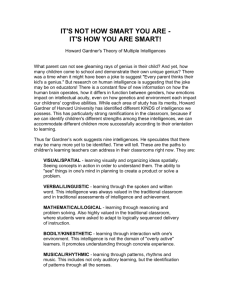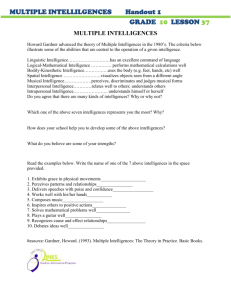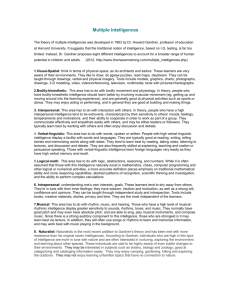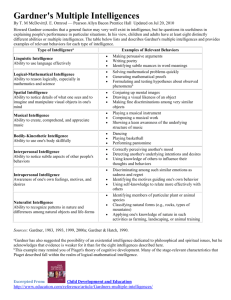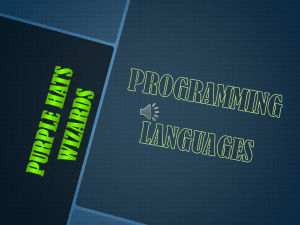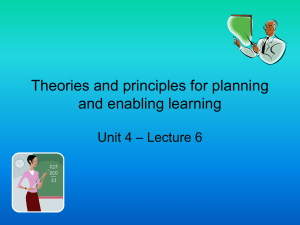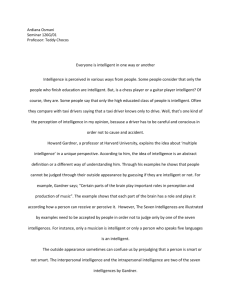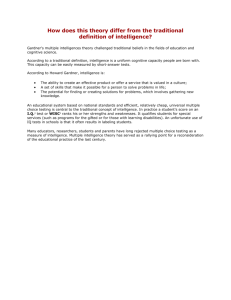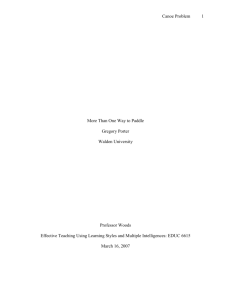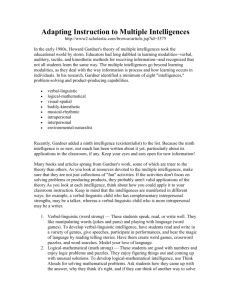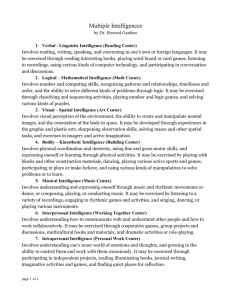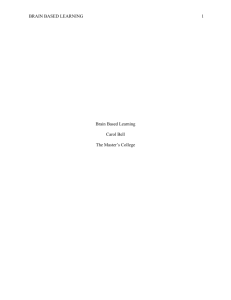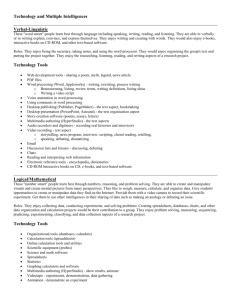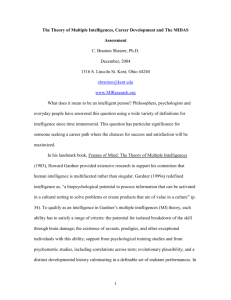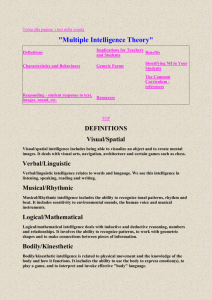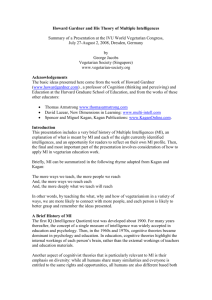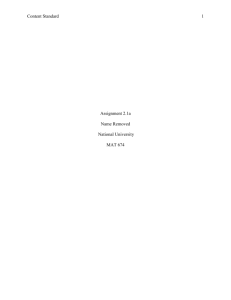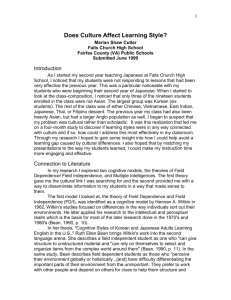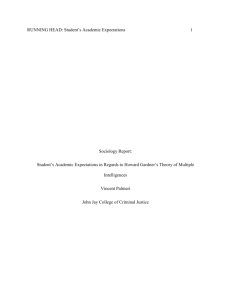Seminar-Assignment #2
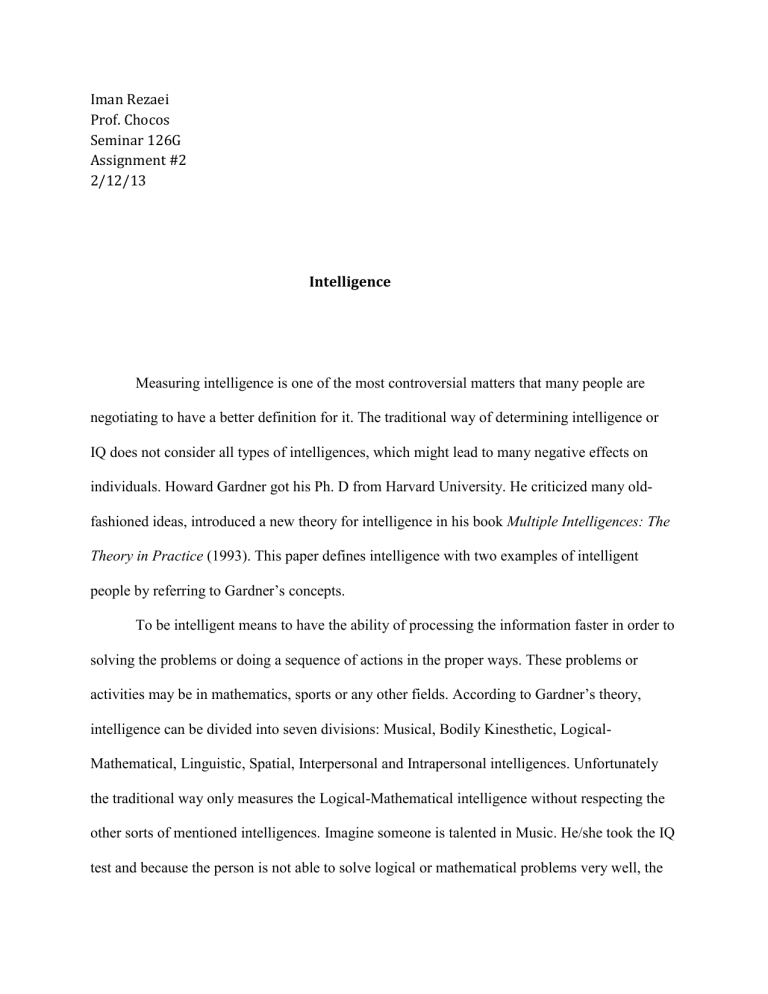
Iman Rezaei
Prof. Chocos
Seminar 126G
Assignment #2
2/12/13
Intelligence
Measuring intelligence is one of the most controversial matters that many people are negotiating to have a better definition for it. The traditional way of determining intelligence or
IQ does not consider all types of intelligences, which might lead to many negative effects on individuals. Howard Gardner got his Ph. D from Harvard University. He criticized many oldfashioned ideas, introduced a new theory for intelligence in his book Multiple Intelligences: The
Theory in Practice (1993). This paper defines intelligence with two examples of intelligent people by referring to Gardner’s concepts.
To be intelligent means to have the ability of processing the information faster in order to solving the problems or doing a sequence of actions in the proper ways. These problems or activities may be in mathematics, sports or any other fields. According to Gardner’s theory, intelligence can be divided into seven divisions: Musical, Bodily Kinesthetic, Logical-
Mathematical, Linguistic, Spatial, Interpersonal and Intrapersonal intelligences. Unfortunately the traditional way only measures the Logical-Mathematical intelligence without respecting the other sorts of mentioned intelligences. Imagine someone is talented in Music. He/she took the IQ test and because the person is not able to solve logical or mathematical problems very well, the
result considers him/her as an unintelligent or sometimes a foolish person. As a consequence, society will look at him/her as someone who has less skill and capability. One of the Einstein’s quotes vividly illustrates this situation. “Everybody is a genius. But if you judge a fish by its ability to climb a tree, it will live its whole life believing that it is stupid.” It is worth noting that these multiple intelligences might be in individuals since they were born.
One of the good examples of an intelligent person is Albert Einstein. He named the person of the century by TIME magazine. This genius is best known because of his mass-energy equivalence formula. He had an excellent logical-mathematical intelligence therefore; the information had been proceeding much quicker in his brain than others. He thought of many new things that nobody could not ever imagine that in that time. He thought differently. Moreover
Einstein as he described himself, “stayed with problems longer than others and he never gave up.” (Einstein: His Life and Universe, 2007) Helen Keller is another well-known intelligent person. She became blind and deaf since she was 19 months old. Her tutor thought Helen a new way of communication so she would be able to speak and write but in a different way. Hence she should have had an intelligence to learn this new language even when she is blind and deaf.
Moreover she went to college and got degree. Generally speaking she had multiple intelligences to understand things, apply these knowledge and experience into her real life.
All the people are intelligent but in different things. Individuals should not be examined by a routine traditional way of measuring intelligence which is through the logical mathematical.
The ones who are not capable in this category should not be considered as unintelligent. Thus, they might be placed into different classification of multiple intelligences. Therefore, all the intelligence classes should be promoted and taught to other people so they can consider the other aspects of intelligence rather than cliché thinking.
